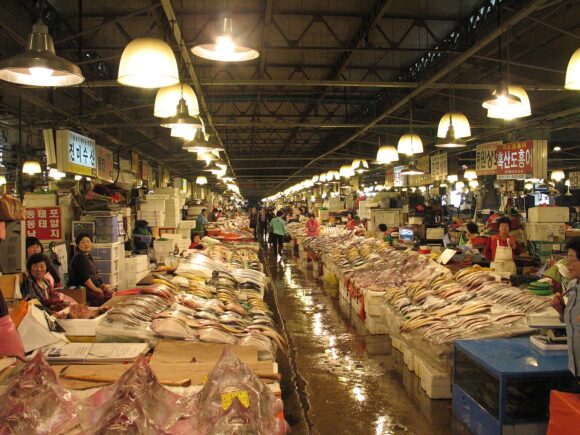China has announced the partial lifting of its ban on seafood imports from Japan, a restriction it imposed two years ago due to concerns surrounding the release of treated wastewater from the Fukushima nuclear power plant.
Beijing’s General Administration of Customs confirmed that imports will now “conditionally resume” from the majority of Japan’s regions. However, seafood from 10 out of Japan’s 47 prefectures — including Fukushima and Tokyo — will remain banned.
The decision follows long-term monitoring of the treated water released from the Fukushima facility. Chinese officials said the test samples had “not shown abnormalities,” providing the basis for easing the restrictions. The announcement was made on 29 June, marking a significant development in the diplomatic and trade ties between the two countries.
The Fukushima disaster, triggered by a massive tsunami in 2011, remains one of the most severe nuclear incidents since the Chernobyl meltdown. The tsunami caused a failure in cooling systems, leading to the meltdown of three of the plant’s six reactors. In the years that followed, more than a million tonnes of treated wastewater accumulated at the site.
In 2023, Japan began the controversial process of discharging the treated water into the Pacific Ocean. The move was endorsed by the International Atomic Energy Agency (IAEA), which stated that the discharge met global safety standards. The process is expected to take approximately three decades to complete.
Despite reassurances from the IAEA and many scientists regarding the safety of the release, some researchers have expressed concern over the lack of long-term data on potential impacts to marine ecosystems. China responded strongly at the time, criticizing Japan’s actions and imposing a blanket ban on seafood imports from the country, citing environmental and public health concerns.
Prior to the ban, China was Japan’s largest seafood market, purchasing nearly 25% of all Japanese seafood exports. The sudden halt in trade significantly impacted Japanese fisheries and related industries.
The Japanese government welcomed China’s partial reversal, describing it as a “positive” step. Officials in Tokyo said they would continue working to persuade Beijing to allow imports from all Japanese regions, including the 10 still under restriction.
China’s customs agency stated that Japanese seafood producers and exporters seeking to resume trade must now reapply for registration. Approved businesses will be subject to ongoing supervision to ensure food safety compliance.
While China and Japan maintain robust economic ties, their relationship has often been strained by historical grievances and territorial disputes. Tensions persist over Japan’s wartime occupation of parts of China and ongoing disagreements over sovereignty in the East China Sea.
Nevertheless, the partial resumption of seafood imports signals a potential thaw in bilateral relations and opens the door to renewed dialogue between the two major Asian economies.






